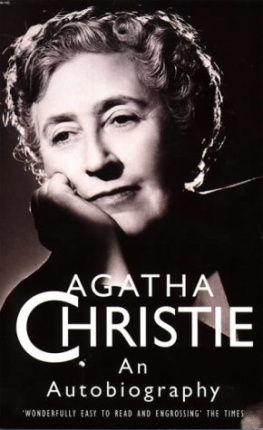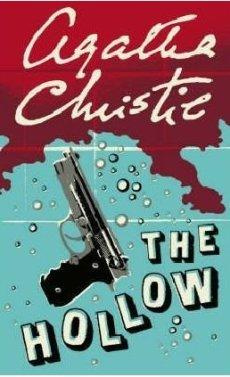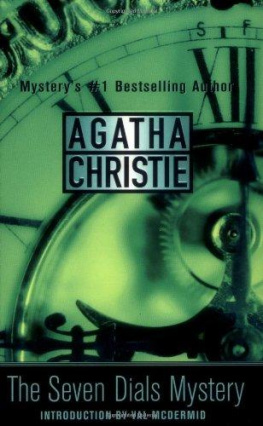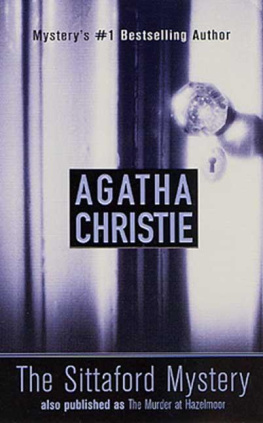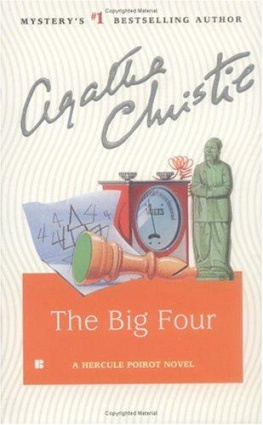Agatha Christie - Passenger to Frankfurt
Here you can read online Agatha Christie - Passenger to Frankfurt full text of the book (entire story) in english for free. Download pdf and epub, get meaning, cover and reviews about this ebook. genre: Detective and thriller. Description of the work, (preface) as well as reviews are available. Best literature library LitArk.com created for fans of good reading and offers a wide selection of genres:
Romance novel
Science fiction
Adventure
Detective
Science
History
Home and family
Prose
Art
Politics
Computer
Non-fiction
Religion
Business
Children
Humor
Choose a favorite category and find really read worthwhile books. Enjoy immersion in the world of imagination, feel the emotions of the characters or learn something new for yourself, make an fascinating discovery.

- Book:Passenger to Frankfurt
- Author:
- Genre:
- Rating:3 / 5
- Favourites:Add to favourites
- Your mark:
- 60
- 1
- 2
- 3
- 4
- 5
Passenger to Frankfurt: summary, description and annotation
We offer to read an annotation, description, summary or preface (depends on what the author of the book "Passenger to Frankfurt" wrote himself). If you haven't found the necessary information about the book — write in the comments, we will try to find it.
Passenger to Frankfurt — read online for free the complete book (whole text) full work
Below is the text of the book, divided by pages. System saving the place of the last page read, allows you to conveniently read the book "Passenger to Frankfurt" online for free, without having to search again every time where you left off. Put a bookmark, and you can go to the page where you finished reading at any time.
Font size:
Interval:
Bookmark:
Agatha Christie
Passenger to Frankfurt
"Leadership, besides being a great creative force, can be diabolical"
Jan Smuts
Introduction
THE AUTHOR SPEAKS:
The first question put to an author, personally, or through the post, is:
'Where do you get your ideas from?'
The temptation is great to reply: 'I always go to Harrods,' or 'I get them mostly at the Army & Navy Stores,' or, snappily, 'Try Marks and Spencer.'
The universal opinion seems firmly established that there is a magic source of ideas which authors have discovered how to tap.
One can hardly send one's questioners back to Elizabethan times, with Shakespeare's:
Tell me, where is fancy bred,
Or in the heart or in the head,
How begot, how nourished?
Reply, reply.
You merely say firmly: 'My own head.'
That, of course, is no help to anybody. If you like the look of your questioner you relent and go a little further.
'If one idea in particular seems attractive, and you feel you could do something with it, then you toss it around, play tricks with it, work it up, tone it down, and gradually get it into shape. Then, of course, you have to start writing it. That's not nearly such fun it becomes hard work. Alternatively, you can tuck it carefully away, in storage, for perhaps using in a year or two years' time.'
A second question or rather a statement is then likely to be:
'I suppose you take most of your characters from real life?'
An indignant denial to that monstrous suggestion.
'No, I don't. I invent them. They are mine. They've got to be my characters doing what I want them to do, being what I want them to be coming alive for me, having their own ideas sometimes, but only because I've made them become real.'
So the author has produced the ideas, and the characters but now comes the third necessity the setting. The first two come from inside sources, but the third is outside it must be there waiting in existence already. You don't invent that it's there it's real.
You have been perhaps for a cruise on the Nile you remember it all just the setting you want for this particular story. You have had a meal at a Chelsea caf. A quarrel was going on one girl pulled out a handful of another girl's hair. An excellent start for the book you are going to write next. You travel on the Orient Express. What fun to make it the scene for a plot you are considering. You go to tea with a friend. As you arrive her brother closes a book he is reading throws it aside, says: 'Not bad, but why on earth didn't they ask Evans?'
So you decide immediately a book of yours shortly to be written will bear the title 'Why Didn't They Ask Evans?' You don't know yet who Evans is going to be. Never mind. Evans will come in due course the title is fixed. So, in a sense, you don't invent your settings. They are outside you, all around you, in existence you have only to stretch out your hand and pick and choose. A railway train, a hospital, a London hotel, a Caribbean beach, a country village, a cocktail party, a girls' school.
But one thing only applies they must be there in existence. Real people, real places. A definite place in time and space. If here and now how shall you get full information apart from the evidence of your own eyes and ears? The answer is frighteningly simple.
It is what the Press brings to you every day, served up in your morning paper under the general heading of News. Collect it from the front page. What is going on in the world today? What is everyone saying, thinking, doing? Hold up a mirror to 1970 in England .
Look at that front page every day for a month, make notes, consider and classify.
Every day there is a killing.
A girl strangled.
Elderly woman attacked and robbed of her meagre savings.
Young men or boys attacking or attacked.
Buildings and telephone kiosks smashed and gutted.
Drug smuggling.
Robbery and assault.
Children missing and children's murdered bodies found not far from their homes.
Can this be England ? Is England really like this? One feels no not yet, but it could be.
Fear is awakening fear of what may be. Not so much because of actual happenings but because of the possible causes behind them. Some known, some unknown, but felt. And not only in our own country. There are smaller paragraphs on other pages giving news from Europe from Asia from the Americas Worldwide News.
Hi-jacking of planes.
Kidnapping.
Violence.
Riots.
Hate.
Anarchy all growing stronger.
All seeming to lead to worship of destruction, pleasure in cruelty.
What does it all mean? An Elizabethan phrase echoes from the past, speaking of Life:
it is a tale
Told by an idiot, full of sound and fury,
Signifying nothing.
And yet one knows of one's own knowledge how much goodness there is in this world of ours the kindnesses done, the goodness of heart, the acts of compassion, the kindness of neighbour to neighbour, the helpful actions of girls and boys.
Then why this fantastic atmosphere of daily news of things that happen that are actual facts?
To write a story in this year of Our Lord 1970 you must come to terms with your background. If the background is fantastic, then the story must accept its background. It, too, must be a fantasy an extravaganza. The setting must include the fantastic facts of daily life.
Can one envisage a fantastic cause? A secret Campaign for Power? Can a maniacal desire for destruction create a new world? Can one go a step further and suggest deliverance by fantastic and impossible-sounding means?
Nothing is impossible, science has taught us that.
This story is in essence a fantasy. It pretends to be nothing more.
But most of the things that happen in it are happening, or giving promise of happening in the world of today.
It is not an impossible story it is only a fantastic one.
Book I INTERRUPTED JOURNEY
Chapter 1
PASSENGER TO FRANKFURT
'Fasten your seat-belts, please.' The diverse passengers in the plane were slow to obey. There was a general feeling that they couldn't possibly be arriving at Geneva yet. The drowsy groaned and yawned. The more than drowsy had to be gently roused by an authoritative stewardess.
'Your seat-belts, please.'
The dry voice came authoritatively over the Tannoy. It explained in German, in French, and in English that a short period of rough weather would shortly be experienced. Sir Stafford Nye opened his mouth to its full extent, yawned and pulled himself upright in his seat. He had been dreaming very happily of fishing by an English river.
He was a man of forty-five, of medium height, with a smooth, olive, clean-shaven face. In dress he rather liked to affect the bizarre. A man of excellent family, he felt fully at ease indulging any such sartorial whims. If it made the more conventionally dressed of his colleagues wince occasionally, that was merely a source of malicious pleasure to him. There was something about him of the eighteenth-century buck. He liked to be noticed.
His particular kind of affectation when travelling was a kind of bandit's cloak which he had once purchased in Corsica . It was of a very dark purply-blue, had a scarlet lining and had a kind of burnous hanging down behind which he could draw up over his head when he wished to, so as to obviate draughts.
Sir Stafford Nye had been a disappointment in diplomatic circles. Marked out in early youth by his gifts for great things, he had singularly failed to fulfil his early promise. A peculiar and diabolical sense of humour was wont to afflict him in what should have been his most serious moments. When it came to the point, he found that he always preferred to indulge his delicate Puckish malice to boring himself. He was a well-known figure in public life without ever having reached eminence. It was felt that Stafford Nye, though definitely brilliant, was not and presumably never would be a safe man. In these days of tangled politics and tangled foreign relations, safety, especially if one were to reach ambassadorial rank, was preferable to brilliance. Sir Stafford Nye was relegated to the shelf, though he was occasionally entrusted with such missions as needed the art of intrigue, but were not of too important or public a nature. Journalists sometimes referred to him as the dark horse of diplomacy.
Font size:
Interval:
Bookmark:
Similar books «Passenger to Frankfurt»
Look at similar books to Passenger to Frankfurt. We have selected literature similar in name and meaning in the hope of providing readers with more options to find new, interesting, not yet read works.
Discussion, reviews of the book Passenger to Frankfurt and just readers' own opinions. Leave your comments, write what you think about the work, its meaning or the main characters. Specify what exactly you liked and what you didn't like, and why you think so.

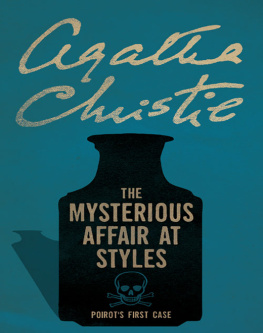
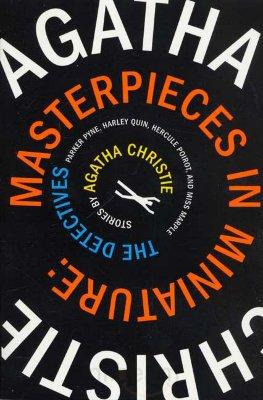
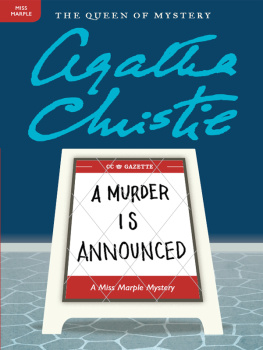
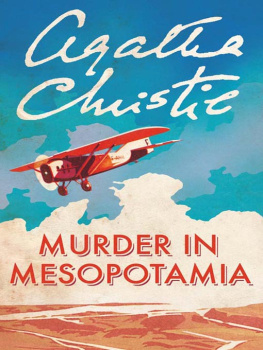
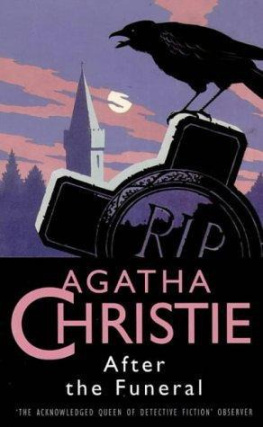
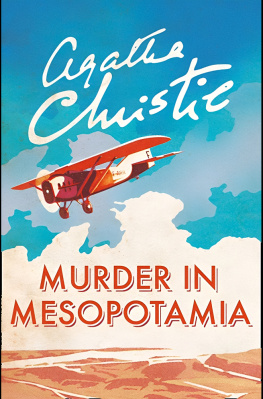
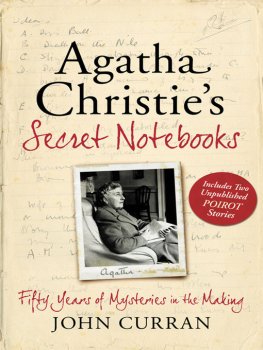
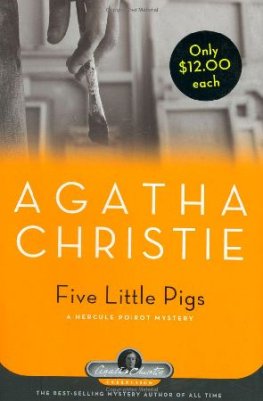
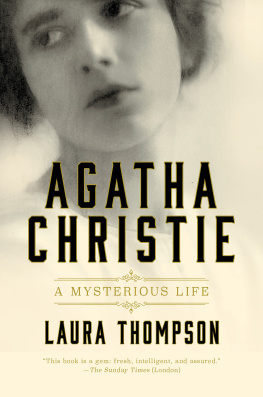

![Agatha Christie [Agatha Christie] - Problem at Pollensa Bay](/uploads/posts/book/140367/thumbs/agatha-christie-agatha-christie-problem-at.jpg)
